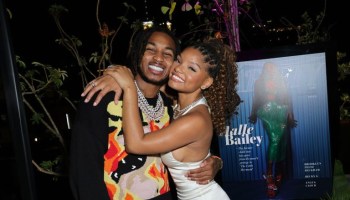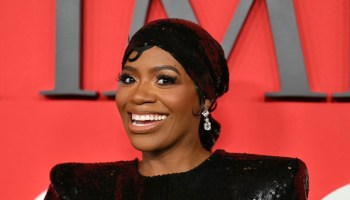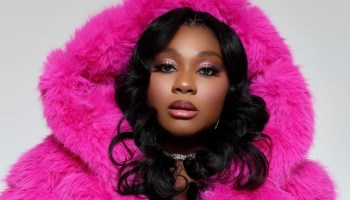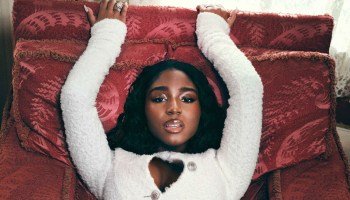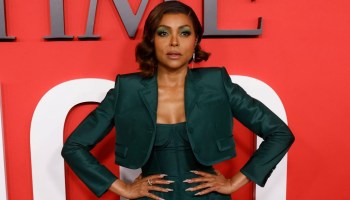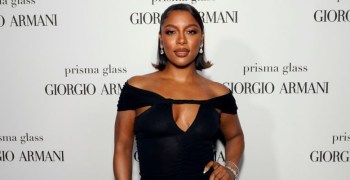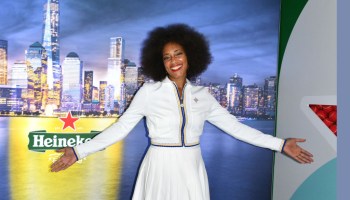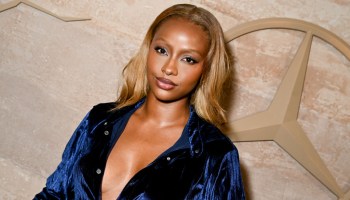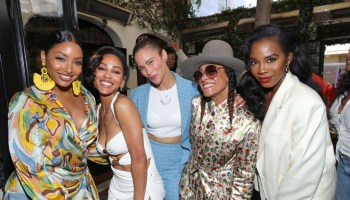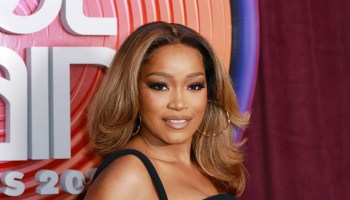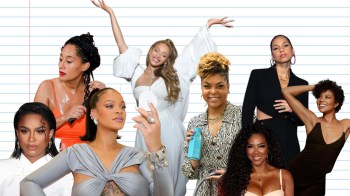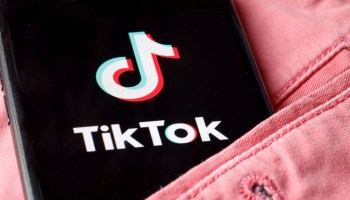THE NOD is the new podcast to hit your earbuds serving Black realness from a unique perspective. We sat down with the masterminds behind the series, Brittany Luse and Eric Eddings, and picked their brains about content creation for and by the Black community.
HB: How did you all come up with the concept for THE NOD? (I’m assuming The NOD references the head nod, the silent acknowledgement Black people give each other in public spaces).
Eric: Exactly. We were looking for a title that personified the happy feeling, the familiar feeling that people would have when thinking about the topics that we would cover. And I think “The Nod” hits the nail on the head and says I see you, I’m looking out for you.
HB: Podcasts have really blown up among Black millennials. Why do you think this form of storytelling and reporting has become so important for our community?
Brittany: People of color especially Black people are shut out of opportunities to put out media that we feel accurately depicts what our lives are like on a mass scale. And I think podcasting has blown up for two main reasons. Number one, it’s a lower barrier for entry as far as the materials that you need to make it. Now anybody with a cell phone and a laptop can put out a podcast. And if you wanted to spend $100 more, then you could actually put out one that sounds close to professional. Podcasting is cheaper to do than putting out a film or creating a television show. Basically it’s accessible to more people …the tools are accessible to more people. Also, the medium feels intimate. It’s like when you’re listening to two people have a conversation and you’re listening to someone tell a personal story or you know you’re listening to people live their lives in real time.
HB: How do you choose which stories to tell?
Eric: We look for stories that are going to be surprising. We also look for stuff that has been overlooked or maybe passed over. And that happens a lot with Black stories specifically. We usually get the quick hot take, ‘Oh this is the thing that happened’ and then people go on with life.
HB: How do you think shows, like your own, help to change the negative narrative about Black people that’s perpetuated in the media?
Brittany: Well I’m not so sure that we’re necessarily worried about negative portrayals. People of all colors come in all stripes. There are some negative Black people out there. There are some wonderful Black people out there.
Eric: Not all skin folk is kin folk.
Brittany: Exactly. (laughs) Not all skin folk is kin folk. But we want to show accurate and varied representation.
HB: What do you want audiences to take from the stories you tell?
Eric: Nuance. I think so many of our stories are stripped of nuance. To the point where people think Black people aren’t capable of it. There’s so many different economic, interpersonal, cultural variables or dynamics at play within how we do something a simple as walk down the street. And so if we can build in those details, that nuance into our stories, that’s just that’s automatically going to get people to think in a more complex way about our culture.
Brittany: Also, I think that sometimes when you use the word “reported” stories, some people might think it’s going to be like 11 o’clock news coverage, but we’re chasing down stories that are interesting to us and that we think might be interesting to other people. So we talk about du rags. We talk about Black sexuality and Black erotica.
Eric: Yes. We talk about YouTube conspiracy theories, Afrocentric schools. We talk about the Lo Lifes–this Black group of boosters who change the relationship between hip hop and fashion.
Brittany: We also have a bunch of segments. So we have one called “Good for the Blacks” where basically we take the work out of searching for the ultimate Twitter hot take on a new Black phenomenon that may be confusing. Like you know often Black people are faced with something that’s like either new or seemingly out of left field that has to do with a Black person or Black culture. And you quickly have to decide like is this good for people or is this bad for Black people. And so basically we are going to take the guesswork out of that for you. And you know Eric and I along with a guest are going to just break down all the nuance, all of the texture within said thing and give you the final verdict. We’re going to be talking about the Black Bachelorette, maybe Meghan Merkel and Prince Harry. We’re trying to help everybody navigate these times.
Eric: Also we look back at history. You know a lot of what we want to do is unearth our history by telling the stories of little known Black history figures. We do this while eating as much peanut butter as we possibly can in four minutes in a segment called “Peanut Butter History” in honor George Washington Carver.
THE NOD premieres on Monday July 17th and you can find it wherever you get your podcasts. Apple podcasts, SoundCloud, Stitcher, Spotify.
TOP STORIES OF THE DAY
Texas Judge Sexted Her Bailiff & Used Him To Buy Drugs
R. Kelly’s Alleged Secret Sex Cult Revealed In Bombshell Exposé









